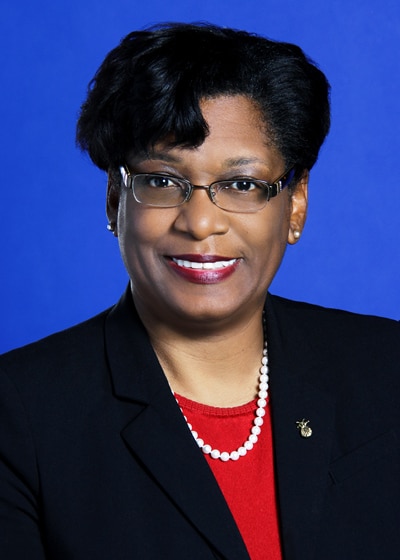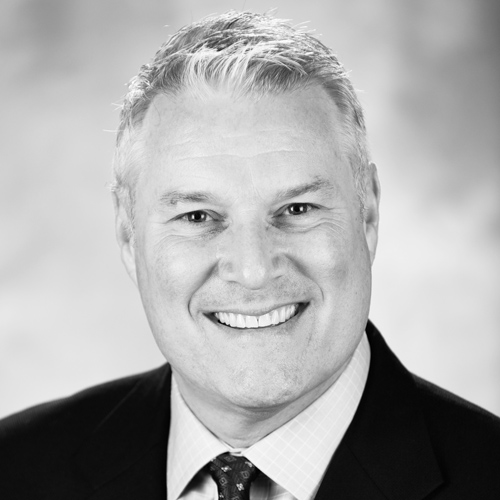Everywhere you look—in healthcare technology, organization consolidations, and public policy and politics—the prevailing theme is transformative change. And although much of that change is good, it is disruptive and remains under a cloud of legislative uncertainty.
But healthcare leaders are still required to work and thrive in these circumstances. This means organizations need to constantly pivot to adapt to increasing needs from an aging population.
Baptist Health South Florida, a Miami-based nonprofit hospital and clinical care network that spans four counties in the southern portion of the state, is a prime example of an institution meeting these changes head-on. It has the unique circumstance of an executive team with members who each have been in executive positions with the organization for several decades, including president and CEO Brian E. Keeley, who has been in his position for more than two decades. Adriene McCoy, corporate vice president and chief human resources officer for the organization, counts herself among those long-tenured employees, having spent ten years at Baptist Health to date.

With nine hospitals, more than fifty outpatient facilities, urgent care centers, physician offices, and sixteen thousand employees, the organization has undergone significant strategic growth organically and through acquisition under stable leadership. McCoy’s management and HR strategies in particular have been instrumental to the success of Baptist Health during this uncertain time in healthcare. A critical component to her HR policies include “the pivot concept.”
“With so much transitioning going on, no one should be too comfortable in one job,” McCoy says. “We’ve been training our people to get ready to move, to adapt, and to be agile. This is not a place for the status quo.”
The geographic layout of Baptist Health’s various facilities also presents challenges for McCoy and her team. The system serves patients in Miami-Dade, Broward, Palm Beach, and Monroe counties, the latter of which encompasses the Florida Keys. Knitting together numerous facilities over a wide-spanning geography isn’t a simple task. “There’s a four-hour travel distance between our northern and southern facilities, which creates a challenge for leaders,” McCoy explains.
One strategy is to use Skype for certain meetings. Another is to keep the leadership of two hospitals in the Keys on one executive team. But above all, workplace and organizational culture always stays on McCoy’s radar. That includes acclimating newly acquired hospitals and facilities into the organization, and McCoy conversely also recently managed the voluntary separation of roughly 540 people from the organization while hiring more than seven hundred people for a newly built, research-based cancer institute. These initiatives were so successful that McCoy was named the 2017 Healthcare Human Resources Executive of the Year by HRO Today, a human resources industry publication.
The new cancer facility, Miami Cancer Institute, is a world-class outpatient center that provides leading-edge clinical care, advanced clinical research, and state-of-the-art technology—including the first proton therapy center in South Florida, Latin America, and the Caribbean. Miami Cancer Institute is Florida’s only member of the Memorial Sloan Kettering Cancer Alliance, which brings together clinical trials, research, and cutting-edge discoveries to patients across South Florida.
McCoy says the January 2017 opening of Miami Cancer Institute, with more than one thousand physicians, technicians, nurses, and other support staff on duty from day one, wasn’t as difficult as it may sound. “We had been planning for three years that we’d have to staff up to meet the needs of this facility,” she says.
This modesty is consistent with McCoy’s pivot concept. It’s about responding to changing market needs and taking advantage of newer practices and technologies.
For example, Baptist Health has fully adopted EHRs. McCoy says that physicians and nurses are now required to document more than they have in the past. She also speaks of disruptors—the newer technologies that currently put patients in the driver’s seat. “We are seeing wearables such as Fitbit, Google, and virtual care on demand,” she says. “Patients have a greater number of choices in healthcare, and as consumers, they are looking for quality, convenience, and great service.”
The Affordable Care Act (ACA) was another catalyst for transformative change that McCoy had to adapt to. The ACA initially insured more people, but a portion of them used the emergency room as a primary care starting point. McCoy says that with the economic imperatives to lower costs and point patients to the right site of care, Baptist Health has been successful in expanding its community-based primary care and urgent care facilities.
To get patients to the right site of care, education is paramount. This only comes about, however, through well-trained and coordinated hospital communications staff who, quite similar to clinical professionals, have more specialized jobs and tasks than before. They are expected to deliver best-in-class care while also watching the bottom line. It’s a challenge, but Baptist Health is well-positioned to remain strong through the rough waters of healthcare reform. For seven years running, Ethisphere Institute has named the organization one of the “World’s Most Ethical Companies.” The institute cites “shifts in societal expectations, changing laws, regulations, and geopolitical climates” as factors that Baptist Health and other healthcare companies on the list face every day and continue to thrive in.
In other words, this means staying true to the mission of healthcare in a rapidly changing environment. Or, as McCoy might put it, Baptist Health knows how to pivot.


